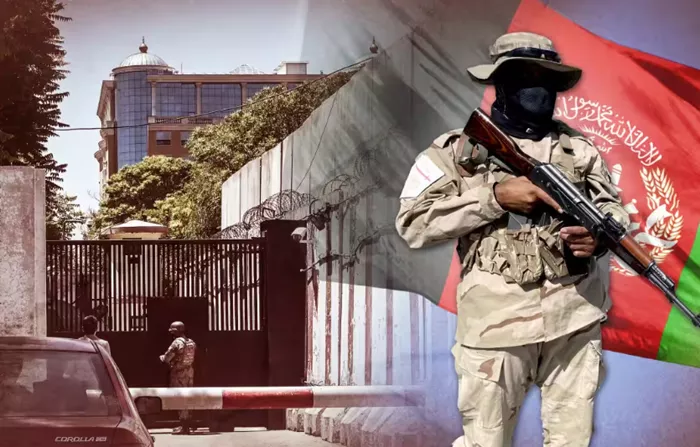In August 2021, as the Taliban seized control of Kabul, Australia’s embassy had already shut its doors two months prior, on June 30. For Samiullah Noori, the closure marked the beginning of a turbulent journey fraught with uncertainty.
“I initially thought it was a nightmare,” Noori recounted. “But the harsh reality quickly set in.” Though fortunate enough to secure asylum in Australia, Noori faced immediate concerns about the feasibility of departing from Kabul amidst the chaos.
Noori and his family ultimately escaped to Sydney in November 2021 via Pakistan. At the time of the embassy’s closure, Noori co-owned Safi Engineering Ltd., a company responsible for power services at the embassy under a contract with Australia’s Department of Foreign Affairs and Trade (DFAT).
Documents reviewed by SBS Pashto reveal that Safi Engineering secured a contract with DFAT on March 1, 2020, worth US$23,000 ($37,000) per month. However, this contract was abruptly terminated on June 30, 2021, prior to its scheduled end on August 31.
Noori expressed surprise at the early termination, having anticipated an extension clause would extend the contract by another 18 months. This unexpected termination left Safi Engineering facing a substantial financial loss, approximately US$1.2 million ($1.8 million), from investments made in the project.
“If we had known they would terminate the contract early, we would have avoided such significant investments,” Noori said. He claims compensation is owed for 15 generators left at the closed embassy complex, which is now surrounded by Taliban forces. Although he believes the generators remain at the site, Noori cannot confirm their status due to restricted access.
Safi Engineering’s records indicate an outstanding amount of US$46,000 ($69,000) for the two months leading up to the contract’s termination. Noori asserts that despite this, DFAT has not settled the invoice. However, a source close to the matter stated that all invoices up to the termination date were paid. Noori contends that he cannot verify these payments due to the Taliban’s seizure of office documents.
A DFAT spokesperson stated, “Upon the closure of the embassy on May 28, 2021, the Australian government adhered to its contractual obligations with Safi Engineering.”
Meanwhile, Farid Shokori, Noori’s partner at Safi, fled to Pakistan following the Taliban takeover. Shokori is currently awaiting the outcome of his asylum application with the Australian government. Initially rejected in April 2022, Shokori has re-applied and is now waiting for a decision.
“I fear deportation or imprisonment in Pakistan,” Shokori said. “Returning to Kabul is not an option due to the Taliban’s knowledge of our identities and the risks involved.”
Shokori, who worked for seven years at the Australian embassy, is disheartened and uncertain about his future. He appeals to the Australian government for urgent assistance to secure visas for himself and his colleagues.
The Department of Home Affairs informed SBS Pashto in July that it could not provide individual application updates due to the volume of pending applications. The department is processing Special Humanitarian Program (SHP) priority applications from August 2021, with a projected multi-year timeline for completion.
A DFAT spokesperson emphasized the government’s ongoing commitment to assisting Afghans who supported Australia’s mission. “We are extending all efforts to finalize certifications and visa applications for Afghan locally engaged employees,” they said. Additionally, the Australian government has allocated 16,500 places under the Humanitarian Program and 10,000 places within the Offshore Humanitarian Program to support Afghan nationals over four years.
Related topics:
- How Much Is a Whole House Propane Generator
- How Much Diesel Fuel Is Required to Charge A Diesel Generator?
- What Are Tidal Energy and Wave Generators?

